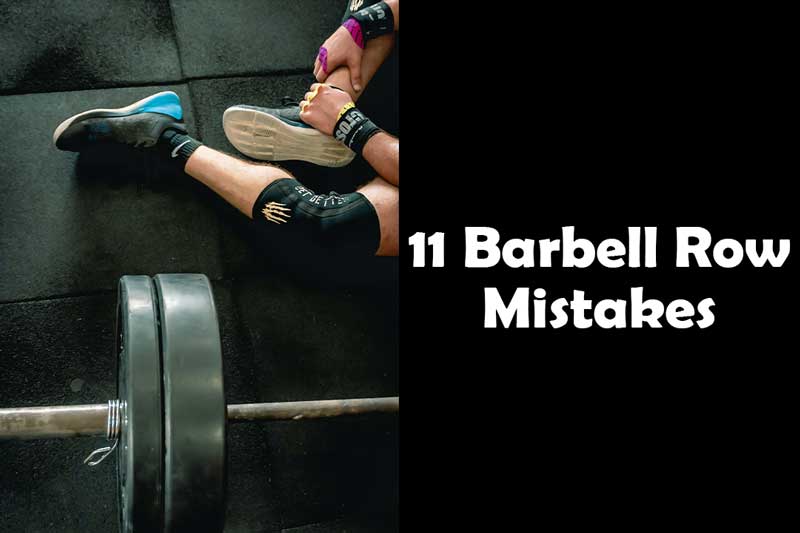Lifting weights has long been recognized as an effective way to enhance physical fitness and overall well-being. One of the main advantages of lifting heavy weights is growth in muscles and muscular strength. Among the various weightlifting techniques, lifting heavy weights stands out as an incredibly beneficial and efficient method to achieve fitness goals.
Also, keep in mind that by heavy weight it is meant to be a weight that is challenging. It doesn’t mean a weight that is too much for a person’s current strength level. With advantages, lifting too much heavy weight comes with various disadvantages as well.
In this article, we will explore the advantages of lifting heavy weights and why incorporating this form of exercise into your fitness routine can yield impressive results.
What are Heavy Weights?
Before delving into the advantages, let’s define what constitutes lifting “heavy weights.” In the context of strength training, heavy weights refer to using a load that challenges your muscles significantly.
Typically, this involves lifting weights that are close to your maximum capability for a given exercise. This level of intensity triggers various physiological responses that contribute to the benefits of heavy weight lifting.
By heavy weight it doesn’t mean you lift too heavy and injure yourself. First thing first, you have to know what your strength level of a particular exercise is.
Advantages of Lifting Heavy Weights
1) Increases Muscle Strength
One of the primary benefits of lifting heavy weights is the remarkable increase in muscle strength.
When you lift heavier loads, your muscles adapt by recruiting more motor units and increasing the number of muscle fibers engaged during the exercise. As a result, your muscle strength improves significantly.
2) Enhances Muscle Hypertrophy
Heavy weight lifting is also highly effective for muscle hypertrophy, which refers to the increase in muscle size.
The intense load applied to the muscles during heavy lifting causes micro-tears in the muscle fibers. Subsequent repair and growth of these fibers lead to muscle hypertrophy, creating a more toned and sculpted physique.
3) Boosts Metabolism
Lifting heavy weights can have a positive impact on your metabolism. The high-intensity nature of heavy weight lifting activates the body’s anaerobic energy systems, leading to an “afterburn” effect.
This means that even after your workout, your body continues to burn calories at an elevated rate, aiding in weight management and fat loss. It is also true that the more muscles you gain the more your metabolism will increase.
4) Improves Bone Density
As we age, maintaining strong and healthy bones becomes crucial to prevent conditions like osteoporosis.
Heavy weight lifting is a weight-bearing exercise that places stress on your bones, prompting them to adapt and become denser and stronger. This can significantly reduce the risk of bone-related issues in the long run.
5) Enhances Overall Physical Performance
Lifting heavy weights contributes to enhanced overall physical performance. The increased muscle strength, power, and endurance gained through heavy weight lifting can altogether improve your performance in various sports and daily activities.
6) Enhances Mental Strength
Physical strength and mental strength often go hand in hand. Lifting heavy weights challenges your mental endurance and determination.
Pushing yourself to lift heavier loads fosters mental resilience and discipline, which can positively impact other aspects of your life.
7) Burns More Calories
Engaging in heavy weight lifting can lead to a higher calorie burn during and after your workout. The intensity of lifting heavy weights demands more energy, making it an efficient way to burn calories and support weight management.
Lifting heavy needs more energy and the more repetitions of an exercise you do with heavy weight the more energy expenditure will occur. Hence, leading to more calorie burn.
8) Aids in Injury Prevention
Contrary to common misconceptions, lifting heavy weights, when performed with proper form and technique, can actually reduce the risk of injuries.
Strengthening muscles, tendons, and ligaments through heavy lifting provides additional support and stability to joints, lowering the likelihood of injuries.
9) Promotes Hormonal Balance
Lifting heavy weights triggers the release of various hormones, including testosterone and growth hormone.
These hormones play essential roles in muscle development, fat metabolism, and overall hormonal balance, contributing to a healthier and fitter body.
This also releases dopamine, which is a happy hormone and helps in mental health as well.
10) Time Efficiency
Compared to other forms of exercise, lifting heavy weights offers a time-efficient approach to fitness.
With fewer repetitions and sets needed to achieve results, you can save valuable time while still reaping numerous benefits.
11) Suitable for Both Genders
Lifting heavy weights is not limited to a specific gender. Both men and women can enjoy the advantages of heavy weight lifting without compromising femininity or masculinity. It is a versatile and inclusive form of exercise.
12) Supports Long-Term Health
Regularly incorporating heavy weight lifting into your fitness routine can have a positive impact on your long-term health.
From improved bone density to enhanced cardiovascular health, the benefits of heavy lifting extend far beyond physical appearance.
As we already know, it helps in both physical and mental well being and that too for long terms.
13) Increases Confidence and Self-Esteem
As you achieve personal records and witness the progress in your strength and physique, your confidence and self-esteem naturally receive a boost.
Lifting heavy weights empowers individuals by showcasing their capabilities and achievements. Achieving great physique also helps in gaining self confidence for many people.
Incorporating Heavy Weight Lifting into Your Fitness Routine for Advantages

To incorporate heavy weight lifting into your fitness routine, it is essential to follow a progressive training plan that gradually increases the load and intensity over time.
To help yourself with that, take any exercise and lift the maximum weight with which you can perform 8-10 repetitions. The weight should be challenging enough that your last 1-2 reps are very tough to make. Then, do that for 20-25 days. And increase the weight now and see how many repetitions can you get. Adjust accordingly.
This goes true for all exercises. If you try to lift heavy weights too early and too fast, it can surely lead to injury.
Safety Precautions and Tips
While heavy weight lifting offers numerous benefits, it is crucial to prioritize safety to avoid injuries. Always warm up before lifting, maintain proper form, and use appropriate equipment.
Don’t hesitate to ask for assistance when lifting heavier loads, especially if you’re a beginner.
Conclusion – Advantages of Lifting Heavy Weights
Lifting heavy weights can transform your fitness journey and unlock a host of advantages for your physical and mental well-being. From increased muscle strength to improved bone density, heavy weight lifting offers a well-rounded approach to achieving your fitness goals.
Embrace the challenge and incorporate heavy weight lifting into your routine to experience the remarkable benefits it has to offer.
Always take care of proper form and never lift too heavy that compromises your form and increases the risk of injury.
FAQs
1) Is lifting heavy weights only for bodybuilders?
Heavy weight lifting is beneficial for every individual, not just bodybuilders. It can be adapted to suit different fitness goals, such as improving strength, toning muscles, or supporting weight loss.
2) Can lifting heavy weights cause women to become bulky?
No, heavy weight lifting does not automatically result in a bulky physique for women. It promotes muscle development and a toned appearance without compromising femininity. Decrease weight if you feel you are becoming bulky and if that is not your goal.
3) How often should I be lifting heavy weights?
The frequency of heavy weight lifting depends on your fitness level and goals. For beginners, 1 session per week is sufficient, while experienced lifters may perform more frequent sessions.
4) Can lifting heavy weights help with weight loss?
Yes, heavy weight lifting can aid in weight loss by increasing metabolism, burning calories, and promoting fat loss. Heavy weight lifting with intensity can help in weight loss. Combined with a balanced diet, it can be an effective weight management tool.
5) Is lifting heavy weights safe for older adults?
When performed with proper form and under appropriate guidance, heavy weight lifting can be safe and beneficial for older adults.
However, it’s essential to start at an appropriate intensity and progress gradually. Always consult a healthcare professional before beginning any new exercise regimen.





